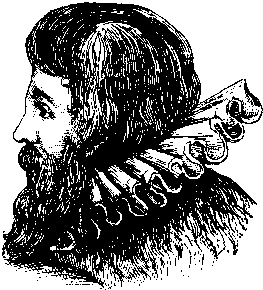A Quote by Benjamin Franklin
That wise Men have in all Ages thought Government necessary for the Good of Mankind; and, that wise Governments have always thought Religion necessary for the well ordering and well-being of Society, and accordingly have been ever careful to encourage and protect the Ministers of it, paying them the highest publick Honours, that their Doctrines might thereby meet with the greater Respect among the common People.
Related Quotes
The good Education of Youth has been esteemed by wise Men in all Ages, as the surest Foundation of the Happiness both of private Families and of Common-wealths. Almost all Governments have therefore made it a principal Object of their Attention, to establish and endow with proper Revenues, such Seminaries of Learning, as might supply the succeeding Age with Men qualified to serve the Publick with Honour to themselves, and to their Country.
[A]ll popular and well-mixed governments [republics] . . . are ever established by wise and good men, and can never be upheld otherwise than by virtue: The worst men always conspiring against them, they must fall, if the best have not power to preserve them. . . . [and] unless they be preserved in a great measure free from vices . . . .
Governments having failed the people, the people are entirely justified in assuming for themselves an essential role in government. Where a government takes proper measures to protect the people under its care, such a proceeding might have been thought both unnecessary and unjustifiable: But here it is quite the Reverse.
Religion is as necessary to reason as reason is to religion. The one cannot exist without the other. A reasoning being would lose his reason, in attempting to account for the great phenomena of nature, had he not a Supreme Being to refer to; and well has it been said, that if there had been no God, mankind would have been obliged to imagine one.
If men were angels, no government would be necessary. If angels were to govern men, neither external nor internal controls on government would be necessary. In framing a government which is to be administered by men over men, the great difficulty lies in this: you must first enable the government to control the governed; and in the next place oblige it to control itself. A dependence on the people is, no doubt, the primary control on the government; but experience has taught mankind the necessity of auxiliary precautions.
O prejudice, prejudice, prejudice, how many hast thou destroyed! Men who might have been wise have remained fools because they thought they were wise. Many judge what the gospel ought to be, but do not actually enquire as to what it is. They do not come to the Bible to obtain their views of religion, but they open that Book to find texts to suit the opinions which they bring to it. They are not open to the honest force of truth, and therefore are not saved by it.
Machiavel, discoursing on these matters, finds virtue to be so essentially necessary to the establishment and preservation of liberty, that he thinks it impossible for a corrupted people to set up a good government, or for a tyranny to be introduced if they be virtuous; and makes this conclusion, 'That where the matter (that is, the body of the people) is not corrupted, tumults and disorders do not hurt; and where it is corrupted, good laws do no good:' which being confirmed by reason and experience, I think no wise man has ever contradicted him.
Economic freedom is in our eyes a good. It is among the highest of temporal goods because it is necessary to the highest life of society through the dignity of man and through the multiplicity of his action, in which multiplicity is life. Through well-divided property alone can the units of society react upon the State. Through it alone can a public opinion flourish. Only where the bulk of the cells are healthy can the whole organism thrive.
If God does not exist, and if religion is an illusion that the majority of men cannot live without ... let men believe in the lies of religion since they cannot do without them, and let then a handful of sages, who know the truth and can live with it, keep it among themselves. Men are then divided into the wise and the foolish, the philosophers and the common men, and atheism becomes a guarded, esoteric doctrine - for if the illusions of religion were to be discredited, there is no telling with what madness men would be seized, with what uncontrollable anguish.
A wise and frugal Government, which shall restrain men from injuring one another, which shall leave them otherwise free to regulate their own pursuits of industry and improvement, and shall not take from the mouth of labor the bread it has earned. This is the sum of good government, and this is necessary to close the circle of our felicities.































